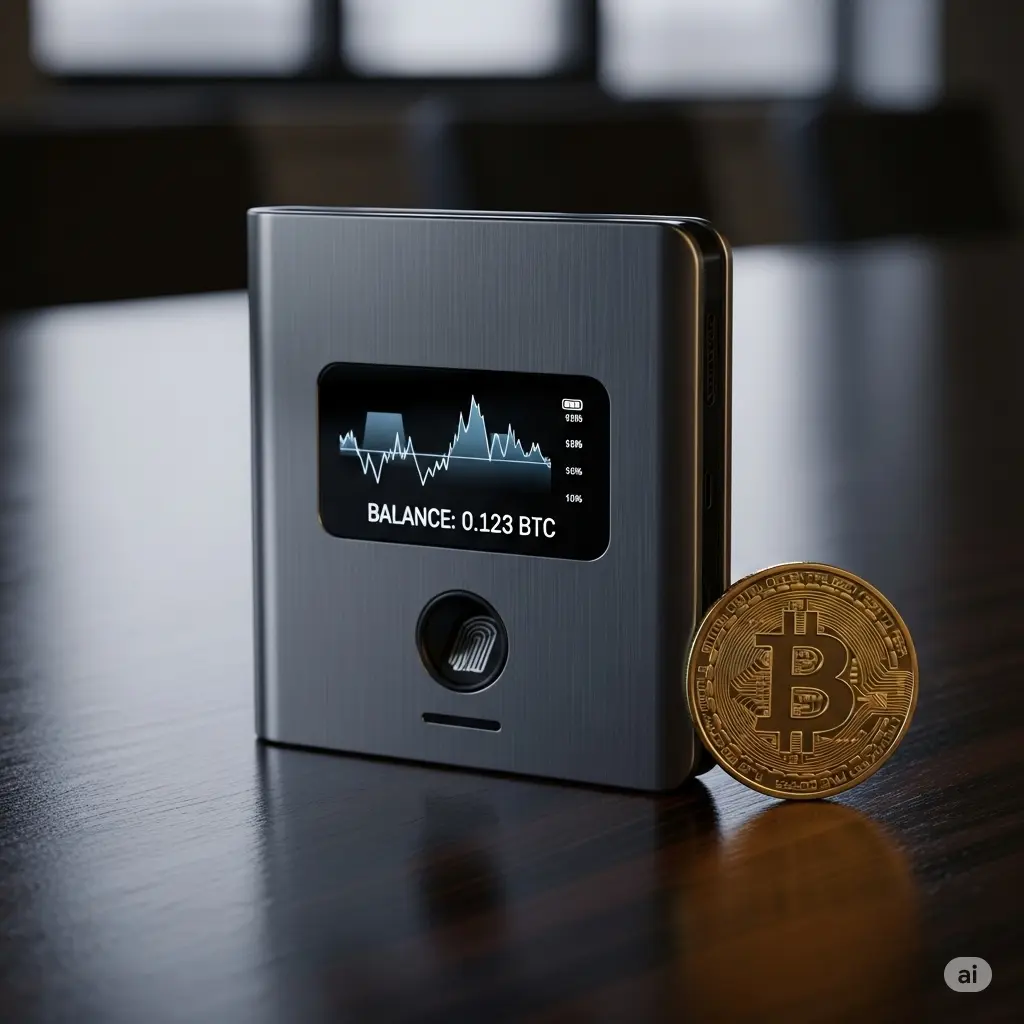Keep Your Assets Safe with a Secure Crypto Wallet
In today’s fast-paced digital economy, keeping your assets safe has never been more vital. The concept of a Secure Crypto Wallet is critical right now. Whether you’re diving into DeFi, venturing into Web3, or following trends for Global Crypto Sports, the safety of your crypto holdings depends on having the right wallet.
In this comprehensive guide, we will cover everything you need to know about securing your crypto: from understanding what wallets are and how they work, to choosing the best crypto wallet 2025, exploring cold vs. hot and hardware vs. mobile options, and giving you practical, actionable steps to keep your investments safe.

What Is a Secure Crypto Wallet—and Why It Matters
Let’s start by unpacking what we mean by a Secure Crypto Wallet.
- A secure crypto wallet is essentially a digital tool that allows you to store, send, and receive cryptocurrencies securely. It manages access to your private and public keys—your credentials on the blockchain.
- When we say secure, we mean the wallet does more than simply store keys. A secure wallet offers:
- Strong encryption
- User-controlled private keys
- Backup and recovery options
- Protection against phishing, keyloggers, and hacking
- Why is this crucial? Over $1 billion in crypto is stolen each year via phishing and wallet hacks. A solid security strategy is your best defense.
And a few key terms you might know (or want to know!):
- Blockchain: A decentralized ledger technology that records all crypto transactions chronologically, transparently, and immutably.
- DeFi (Decentralized Finance): Financial services operated on blockchain, enabling lending, borrowing, investing—without banks.
- Web3: The vision of a decentralized internet where users control their data and assets.
- Public Key / Private Key: Think of your public key as your account number (you share it), while your private key is your password—never share that.
Types of Crypto Wallets
Cold Wallet vs. Hot Wallet
- Cold Wallet
These are wallets that are kept offline:- Examples include hardware wallets, paper wallets, and air-gapped devices.
- Pros: Highly secure, not exposed to internet threats. Great for storing large amounts long-term.
- Cons: Less convenient for frequent transactions; risk of physical loss or damage.
- Hot Wallet
These wallets are connected to the internet:- Includes mobile wallets, web or browser-based wallets, and software installed on your device.
- Pros: Convenient, easy to use for trading, DeFi, and everyday transactions.
- Cons: More exposed to hacks, phishing, and malware.
Hardware Wallet
One of the most trusted cold wallet types:
- Popular brands: Ledger, Trezor, BitBox
- Store your private keys in secure hardware; transactions are signed offline.
- Best crypto wallet 2025? Many experts expect hardware wallets to continue leading, thanks to ongoing firmware updates and integrations across Web3, DeFi, and even Global Crypto Sports platforms.
Mobile Wallet
- Installed as an app on your smartphone.
- Great for quick access, staking, NFTs, and payments.
- Offers adequate security with modern features—like biometric login and in‑app PIN codes—but still a hot wallet by nature.
Decentralized Wallet
- A decentralized wallet (non-custodial) gives you sole control over private keys. You interact directly with blockchains—not through intermediaries.
- Contrast with custodial wallets (exchanges like Coinbase or Binance) – where they hold the keys.
Wallet Backup
Never forget backup:
- Use a seed phrase correctly: written on paper, stored safely (not photos or cloud).
- Consider hardware safe, fire‑proof envelopes, or encrypted digital vaults.
- Backups protect you from device loss, damage, and theft.
Real‑World Examples & Case Studies
A Cautionary Tale — The Phishing Email Scam
Imagine receiving an email that looks exactly like it’s from your wallet provider or exchange. It asks you to “verify your account” and prompts you to enter your seed phrase. You do—and poof—the thief has control over your funds. That’s happened to countless users. A secure wallet, combined with vigilance, could prevent such loss.
Global Crypto Sports and Secure Payments
Consider a new Global Crypto Sports platform launching digital collectibles (NFTs) or offering crypto rewards for fans. Users storing tokens in hot wallets enjoyed easy access but faced increased theft risk. Meanwhile, users who transferred large assets to hardware wallets gained peace of mind as they participated safely.

Pros & Cons of Wallet Types
| Wallet Type | Pros | Cons |
|---|---|---|
| Cold Wallet | Very secure; protects from online threats | Less convenient; physical risks |
| Hot Wallet | Quick, easy, good for daily use | Vulnerable to hacks, phishing, malware |
| Hardware Wallet | Highly secure, offline key management | Cost; learning curve; risk of physical loss |
| Mobile Wallet | Convenient, intuitive, lots of features | Susceptible to phone malware, theft, or scanning attacks |
| Decentralized Wallet | Full control over assets and privacy | Vulnerable to hacks, phishing, and malware |
| Wallet Backup | Recovery safety against loss or damage | You’re solely responsible—no recovery if keys are lost |
Benefits of a Secure Crypto Wallet
- Ownership & Control
With non‑custodial decentralized wallets, you are the sole owner—not an exchange. - Enhanced Security
Cold and hardware wallets offer robust defense against internet attacks. - Privacy
No KYC, no account linking—ideal for those valuing anonymity in Web3 and DeFi. - Peace of Mind
Backup strategies and secure hardware offer long-term safety—even in volatile markets. - Smooth Integration
Many wallets integrate with popular DeFi protocols, staking platforms, and Global Crypto Sports dApps.
Potential Risks of Crypto Wallets
- Losing Your Private Key or Seed Phrase
Without it, your crypto is gone forever—no refunds, no back doors. - Phishing & Malware
Fake sites, malicious links, and clipboard hijackers can trick you into revealing sensitive info. - Physical Theft or Damage
Hardware wallets aren’t invincible—fire, flood, theft, or device failure can be disastrous. - Software Vulnerabilities
Even well-known wallets can have bugs or require updates—skipping them risks loss.
Actionable Advice for Beginners & Intermediates
Selecting the Right Wallet
- Assess your needs:
- Frequent transacting? Go for a hot wallet—but favor one with strong security features.
- Long-term holding & large amounts? Opt for a hardware or cold wallet.
- Choose reputable brands:
- For hardware: Ledger Nano X/S, Trezor Model T/One.
- For mobile: Trust Wallet, MetaMask, Coinbase Wallet (non‑custodial option).
Setup & Security Best Practices
- Always download from official sources
- Avoid third-party or unofficial websites.
- Verify URLs and apps
- Bookmark trusted ones; use two-step verification where possible.
- Use strong passphrases/PINs
- Mix letters, numbers, and symbols.
- Never share your seed phrase or private key
- No exceptions.
- Enable 2FA where available.
- Adds extra protection for login/access.
- Store backups securely
- Fire/water-resistant storage; consider splitting the seed phrase parts into multiple safe locations.
- Regularly update wallet firmware or apps
- Patches often fix potential vulnerabilities.
Using Wallets Safely for Global Crypto Sports Engagement
- Only connect wallets to trusted dApps and ensure the domain is correct.
- Review permissions before approving transactions—especially spending limits.
- Use separate wallets:
- Reserve a hot wallet with minimal funds for daily use.
- Keep larger investments in a hardware wallet or cold wallet.
- Consider revoking permissions after use.
- Don’t sign transactions from shared/public networks without using a VPN and secure devices.
Backup Strategies
- Use BIP39-compatible seed phrases—write them down manually.
- Avoid digital storage (screenshots or cloud).
- Consider metal seed backups, resistant to fire and water.
Educate Yourself
- Visit trusted sources like Global Crypto Sports for news and security tips.
- Follow official wallet blogs and communities for firmware updates, security alerts, and best practices.
FAQ Section
Here are some frequently asked questions to guide you:
1. What is a “secure crypto wallet”?
A Secure Crypto Wallet is any wallet—hardware, mobile, or software—that ensures private keys remain safe via encryption, user control, and protection from online threats. It balances usability with strong security.
2. Which is the best crypto wallet 2025?
While “best” depends on your needs, hardware wallets continue to shine in 2025 due to offline storage and robust firmware. Options like Ledger Nano X or Trezor Model T remain top picks.
3. What’s the difference between a cold wallet and a hot wallet?
A cold wallet is offline—safer from online threats but less convenient. A hot wallet is online—easy for daily use or DeFi, but more vulnerable.
4. Should I use a mobile wallet or a hardware wallet?
Use both, ideally. Mobile wallets are great for small, regular transactions. Hardware wallets are best for large holdings or long-term storage. Diversifying across wallet types is prudent.
5. What is a decentralized wallet?
A decentralized (non‑custodial) wallet gives you full control of your private keys. Unlike exchange‑held wallets, you’re responsible for security, backups, and access.
6. How do I secure a backup of my wallet?
Write your seed phrase on paper or a metal backup. Store in multiple safe, encrypted, or fire‑proof locations. Avoid digital storage.
7. What should I do if I suspect my wallet is compromised?
Move your funds immediately to a new wallet with a fresh seed phrase. Revoke any suspicious permissions and review security on your device (antivirus, malware scans).
Conclusion & Call to Action
Protecting your cryptocurrency starts with choosing the right wallet—one that balances security and convenience. Whether you’re interested in daily DeFi trades or long-term storage for Global Crypto Sports tokens, the best defense is a combination of:
- A hardware or cold wallet for large holdings,
- A mobile or hot wallet for daily access,
- Proper wallet backup,
- Smart habits to avoid phishing or malware,
- And regular updates and education.
Take action today:
- Select the most suitable secure crypto wallet for your needs.
- Set it up—securely! Write down your seed phrase, store it safely.
- Transfer your assets properly.
- Bookmark trusted sites like Global Crypto Sports for wallet and market insights.
- Stay safe, invest wisely—and consider sharing this guide to help others protect their digital wealth.
Thank you for reading! Let me know if you’d like help comparing specific wallets or diving deeper into security setups.
